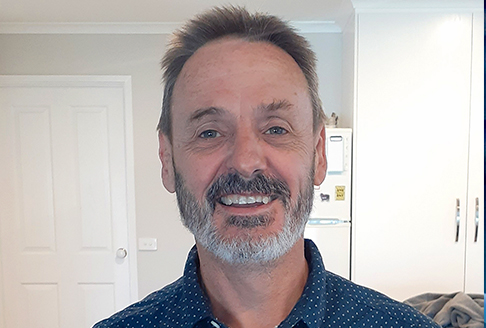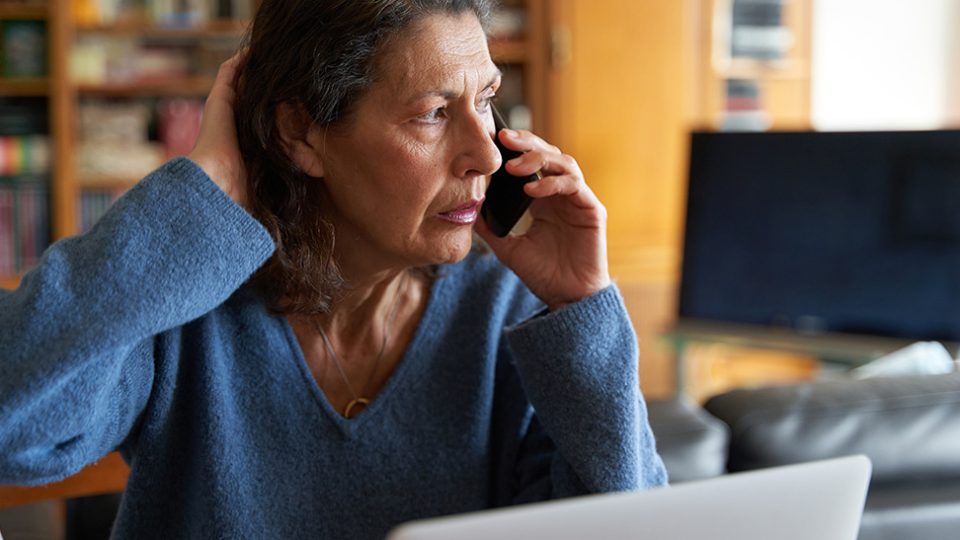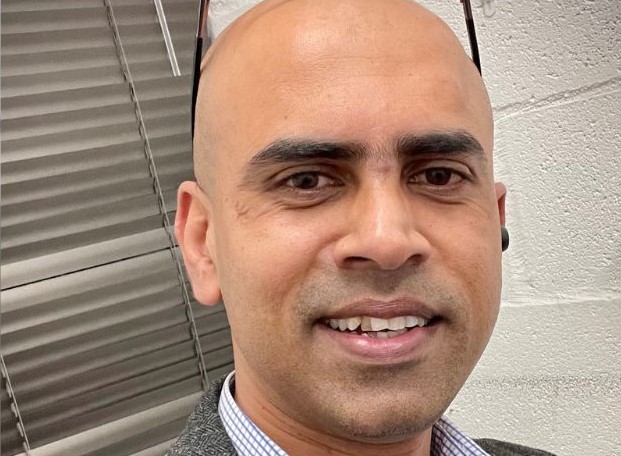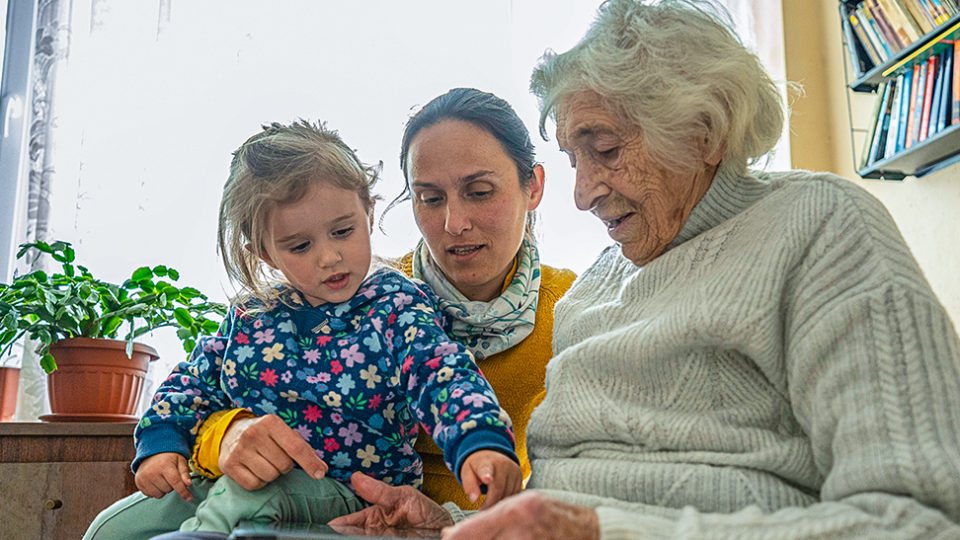Spiritual Care Week 23-29 October | Faces of Baptcare #27 - Danny Parkinson
- 25 Oct 2022

What is your role at Baptcare and can you describe a typical day in your job?
I am the In-Home Care Spiritual Care Co-ordinator for the Loddon region, which covers an area loosely defined by Kerang to Shepparton to Maryborough, and down to Gisborne.
My day basically consists of pre-arranging visits with our In-Home Care clients who have indicated they want to receive spiritual care, and then driving through my region to visit these people in their homes. Spiritual care can best be described as a supportive, compassionate presence for people at significant times of transition, grief and/or loss. It is mostly about meaning, hope, purpose, connection and spirituality.
What do you like about working with Baptcare and in the IHC space? Or can you share a particularly special work day/customer interaction you’ve had recently?
The best part of working for Baptcare is the high-quality people who make up its workforce.
Baptcare are very intentional about doing more than just ‘turning up’ or ‘getting the job done’. Our people genuinely care. There is a human warmth and connectedness from the CEO to the local volunteers.
Recently, I received some wonderful feedback from a lady who I have been spiritually caring for over the past 12 months. At the end of our session together she said “it has helped so much to have someone to talk to. It has really helped me get through”.
Did you always want to work within the Spiritual Care space?
No. I was in pastoral ministry, then Residential Aged Care Chaplaincy and Sports Chaplaincy up until a few years ago, and I really enjoyed these vocations. When the opportunity came up to continue similar work in people’s private homes, this really attracted me. There is opportunity for deeper, ongoing conversations and care relationships. I have been in pastoral care work and ministry most of my life, so this was a positive transition.
How would you explain spiritual care to people who haven’t come across this role in an organisation?
Most care work is either practical, administrative or highly functional. Spiritual Care is about being a compassionate listening presence. We have time to sit, listen, guide and provide feedback if needed. Spiritual Carers can also offer people spiritual and/or religious practices if that suits, and/or invite them on a journey of self-discovery and self-encouragement.
What did you want to be when you grew up?
Hahaha, an ornithologist. But life did not take me that way. As much as I love birds, I am glad I took another path.
Can you tell us two surprising things about yourself?
I love solo bushwalking, and I have lived in five states of Australia.
Do you have a favourite quote or motto in life?
I have two:
- “When in doubt – don’t”
- “If you want to be interest-ing, be interest-ed”
How would your friends describe you?
Relaxed, focused, warm, and just a little bit quirky.
Do you have a mentor or idol?
Jesus Christ.
Community news
-

Tips for dealing with life in the sandwich generation
This is part two in our blog series on the sandwich generation. Here are some tips for dealing with the carer’s squeeze experienced by a growing number of Australians, particularly women. Key points: Summary of challenges facing the sandwich generation Tips for dealing with the challenges System reforms needed
- 11 Jul 2025
-

Meet Suraj | Hospitality Manager Residential Aged Care
What makes a residential aged care community truly feel like home? It’s the perfect blend of a warm, inviting atmosphere, devoted and compassionate staff, and thoughtfully crafted meals that foster an undeniable sense of belonging. Today we meet Suraj Ligade, Baptcare’s Hospitality Manager, to explore how his passion for care and culinary excellence nourishes both the bodies and spirits of our treasured aged care residents.
- 10 Jul 2025
-

The sandwich generation phenomenon unpacked
Welcome to the first of two blogs on the theme of the sandwich generation in Australia. In this one, we’ll cover the definition of the sandwich generation, the different types of caring that fall within it and some of the issues those in the sandwich generation face. The second blog will cover tips for dealing with life in the sandwich generation
- 02 Jul 2025
